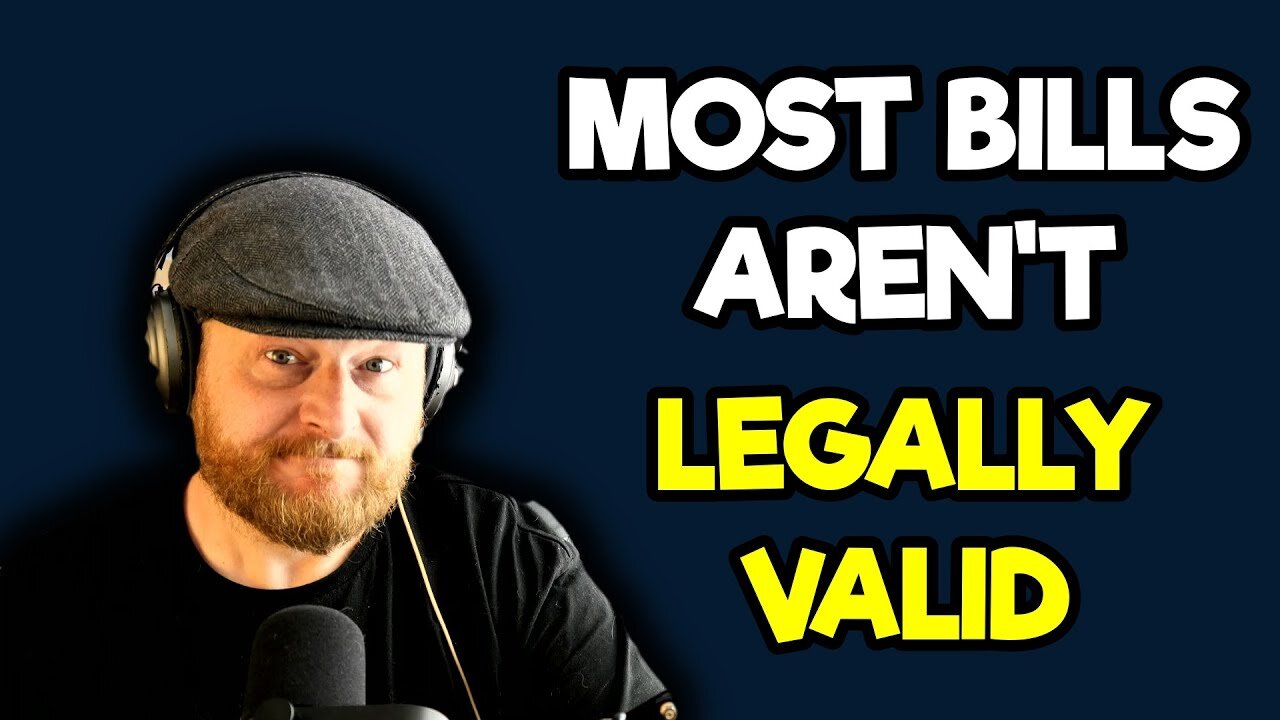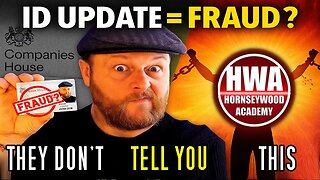Premium Only Content

Why Most Bills Are Not Legally Valid Bills of Exchange Act Explained (UK & Australia)
Think that bill you received in the mail is legally enforceable? Think again.
In this video, we break down the Bills of Exchange Act 1882 (UK) and the Bills of Exchange Act 1909 (Australia) to explain why most payment demands are not actually bills under the law.
🔍 According to Section 3(1) of the UK Act and Section 8 of the Australian Act, a legally valid bill of exchange must:
Be in writing
Be signed by the person issuing it
Be an unconditional order to pay a specific sum
Name the payee clearly
💡 Yet most so-called "bills" that arrive in your mailbox aren't signed by the issuer, making them statements of account—not enforceable bills under this legislation.
🧠 What You’ll Learn:
What legally defines a bill of exchange
Why unsigned payment demands may not be legally binding
How to challenge invalid bills from companies or debt collectors
The difference between a statement of account and a bill of exchange
📚 Legal References:
Bills of Exchange Act 1882 (UK), Section 3(1)
https://www.legislation.gov.uk/ukpga/Vict/45-46/61/section/3
Bills of Exchange Act 1909 (Australia), Section 8
https://www.legislation.gov.au/Details/C2004C01146
✅ Subscribe for more legal insights, consumer rights info, and practical tips on dealing with debt and contracts.
#BillsOfExchange #ConsumerRights #DebtCollectors #UKLaw #AustralianLaw #LegalExplained #UnsignedBills #DebtDemand #FinancialLiteracy
==========================================
Please support the channel.
Bank Transfer - Standing Orders - Only £1.00 a month!
Kristofer Brooks
S/C 11-07-77
A/C 10338063
For one off Donations
https://gofund.me/15b68437
https://www.paypal.com/paypalme/KrisBrooks
https://lsb-films.teemill.com/collection/new
CHECK OUT LSB - First look material! http://patreon.com/LSBFilms
---------------------------------------------------------------------------------------------------------------------
-
 1:43:25
1:43:25
LSB Film Productions
1 month agoAre We Being Tricked Into Fraud? Companies House ID Update EXPOSED | Reclaim Your Legal Name
1445 -
 2:21:10
2:21:10
Badlands Media
11 hours agoDevolution Power Hour Ep. 386: Epstein Disclosures, Clinton Foundation, and Trump’s Wartime Authority
201K19 -
 2:07:22
2:07:22
Inverted World Live
11 hours agoGiant Asteroid Skims Past Earth Today | Ep. 102
51.1K6 -
 3:11:00
3:11:00
TimcastIRL
9 hours agoTrump Kills 11 Narco Terrorists, Democrats Warn War With Venezuela Coming | Timcast IRL
187K207 -
 13:07
13:07
Robbi On The Record
3 days ago $6.39 earnedSweet Poison: The Big Fat Lie That’s Killing America
55.5K27 -
 5:35:49
5:35:49
Drew Hernandez
14 hours agoEPSTEIN VICTIMS SPEAK OUT & TRUMP DOUBLES DOWN
49.5K37 -
 1:36:41
1:36:41
FreshandFit
9 hours agoWe Are QUITTING YouTube...
66.7K60 -
 2:34:22
2:34:22
TheSaltyCracker
9 hours agoDrug Smugglers Blown Up 9-03-25
111K231 -
 3:12:59
3:12:59
VapinGamers
9 hours ago $2.09 earnedGrim Trials - Game Review/Playthru - Rougelight Dungeon Crawler - !rumbot !music
35.6K -
 2:47:55
2:47:55
Mally_Mouse
16 hours ago🎮 Let's Play!! -- Jak 2 pt. 16
66.1K2